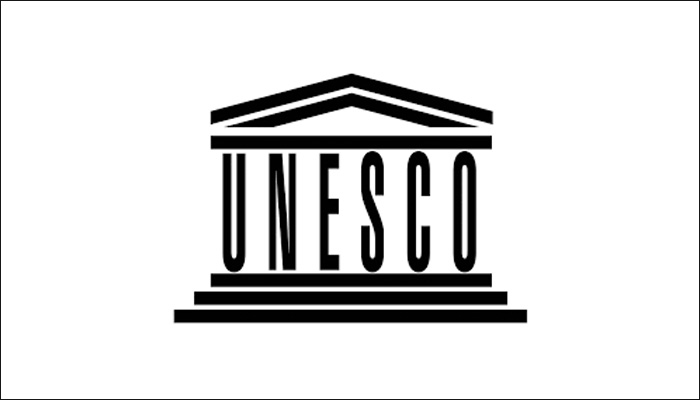[Online] Khoá Học Miễn Phí Về Hệ Thống Khoa Học & Chính Sách Toàn Cầu Từ UNESCO 2017
UNESCO Unitwin Complex Systems Digital Campus is offering a free online course on “Global Systems Science and Policy”. This 2-week course is aimed at anyone interested in how new scientific approaches can support policy.
In this course, applicants will learn how Global Systems Science can inform and model the impact of social, economic, political and environmental policy making. The course will start on September 4, 2017.
Course At A Glance
Length: 2 weeks
Effort: 2 hours/week
Subject: Global Systems Science and Policy
Institution: UNESCO Unitwin Complex Systems Digital Campus and Future Learn
Languages: English
Price: Free
Certificate Available: Yes
Session: Starts on September 4, 2017
Providers’ Details
The Complex Systems Digital Campus (CS-DC) is an international network of individuals and more than 100 universities and institutions working together and sharing resources to promote research and education in complex systems science and in integrative sciences
The CS-DC aims to provide high-quality open education in Complex Systems Science for students, researchers, industry, commerce and policy makers worldwide. This science is essential to address the urgent problems of the modern world, including epidemics, financial crashes, population movements, natural disasters, poverty, conflict and the environment.
About This Course
The policy is the art of achieving desired outcome in the presence of constraints and differing priorities.
The policy is largely a coordination problem. Here data and models can help. The Ebola outbreak in West Africa did not spread worldwide because science-based policies were implemented, replacing ineffective policies such as restricting movement by closing borders.
Why Take This Course?
This is a free online course. Applicants can pursue a verified certificate. This MOOC will be offered with Video Transcripts.
In this course, applicants will learn how Global Systems Science can inform and model the impact of social, economic, political and environmental policy making.
Learning Outcomes
This free online course will help applicants understand the four main elements of Global Systems Science, and how they can work together to create better-formulated policy with better outcomes:
- The policy at all levels, from individuals to the world: we will begin with policy problems at global and national scales. How can these problems be tackled? How can we know which, if any, proposed policy options will work.
- The new, interdisciplinary approach: we will explore how the science of complex social, economic, political, biological, physical and environmental systems can inform policy makers in their work.
- Data science and computational modelling for policy makers: we will look at so-called “policy informatics” – the new, policy-oriented methods of modelling complex systems on computers.
- Citizen engagement: a central concept of GSS is that the behaviour of social systems emerges bottom-up, from the interactions of individuals and institutions, in the context of top-down policy constraints. We will explore what this means in practice – why individual citizens must be involved in decision-making and policy formulation.
Because no method can provide perfect knowledge of the outcomes of policy, we will end with a critical evaluation of Global Systems Science, helping applicants understand its capabilities, limitations, and future development.
Requirements
No prior knowledge is required for this course. It is aimed at:
- Policy makers;
- Officials in the European Commission;
- UNESCO officials and field workers;
- Members of local, national and international charities and NGOs;
- National and local government civil servants and politicians;
- Social scientists;
- Information and communications systems developers;
- Students with the UNESCO UniTwin Complex Systems Digital Campus;
- Or anyone interested in how new scientific approaches can support policy.
Instructors
Jeffrey Johnson
He is Professor of Complexity Science and Design at the Open University, and Vice President of the UNESCO UniTwin Complex Systems Digital Campus.
Evangelia Panagakou
She is a postdoctoral researcher at the Nonlinear Dynamics Lab, Epstein & Fraden Groups, in Brandeis University (US) and a visiting research fellow at the Open University of UK.
Jorge Louçã
He teaches Computer Science at the ISCTE-IUL – Lisbon University Institute.
Sarah Wolf
A mathematician by training, my research now focuses on economic modelling and the question how climate and the economy can both benefit from policy.
How To Join This Course
- Go to the course website link.
- Sign Up At FutureLearn
- Select a course and Join
- Once a course has started, applicant will be able to access the course material
- After the start date, students will be able to access the course by following the Go To Course link on My Courses page.
- Applicants can buy, to show that they have completed a FutureLearn course.
- On some FutureLearn courses, learners will be able to pay to take an exam to qualify for a Statement of Attainment. (These are university-branded, printed certificates that provide proof of learning on the course topic(s)).
----------------------------
Hợp Tác Cùng YBOX.VN Truyền Thông Miễn Phí - Trả Phí Theo Yêu Cầu tại http://bit.ly/YBOX-Partnership
1,612 lượt xem
